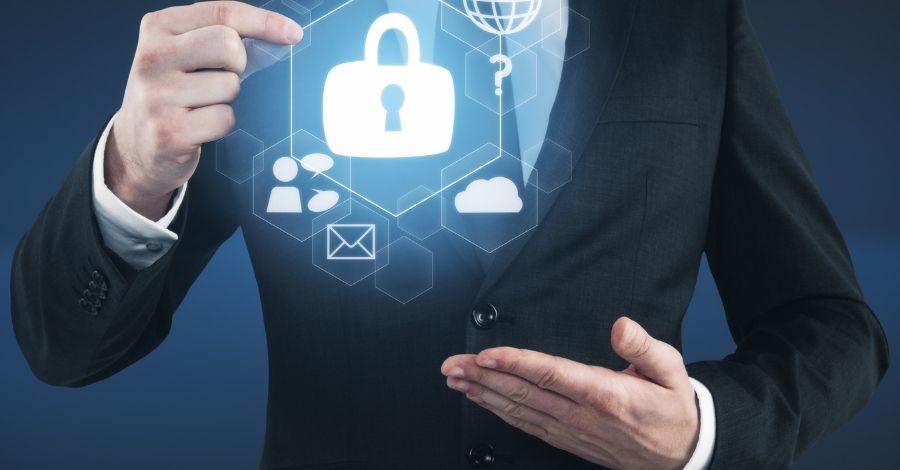The increase in virtual crimes during the pandemic – in 2020 there was a 500% increase in this type of occurrence – has been leaving internet users increasingly concerned about digital security.
And it’s not for nothing. Hacking and cyber invasions can cause great damage, especially after the implementation of PIX. This bank transfer modality has made it easier for criminals to quickly empty victims’ accounts. However, bank account invasion is not the only way hackers operate.
In early 2021, there were several cases of Instagram account invasions, where hackers posed as the owners of the invaded accounts to advertise products that never existed at low prices, taking advantage of the victims’ credibility with their followers to make sales.
In addition, device kidnapping, capture, and sale of personal data, among others, are also real risks to which all of us who are connected to the digital world are exposed. The fear of suffering a hacker invasion is, therefore, justified, and it is essential to know how to protect yourself from cybercriminals.
9 Tips to Protect Yourself from Hacker Invasions and Increase Your Digital Security
Although it is almost impossible to eliminate the risks of being a victim of hacker attacks – criminals are always expanding their repertoire and capacity to act – with some measures, it is possible to significantly reduce them.
Check out the nine tips that STWBrasil has selected for you to protect yourself from hacker invasions and increase your security.
1- Be careful with passwords

From time to time, lists with the most used passwords on the internet can be found.
What is always surprising is that the top options are always simple and weak passwords, such as numeric sequences – for example, 123456.
If you are part of this group, the first thing you need to do is change your passwords, opting for strong passwords. A strong password is not obvious nor linked to any specific aspect of your life and should contain letters (uppercase and lowercase), numbers, and special characters. Also, it is essential not to repeat the password for different login locations.
To avoid forgetting and losing access, you can use a password manager, a true digital safe for your passwords.
2- Have a functional and updated antivirus
Those who want to protect themselves from a hacker invasion need to have antivirus software on all their devices. The program monitors the use of your smartphone, notebook, or computer, alerting you to malicious links and files, offering an extra layer of protection against digital criminals.
It is worth noting that keeping the antivirus up to date is fundamental. Only in this way will you be protected from the vast and growing ecosystem of viruses and malicious programs that proliferate in the digital underworld.
3- Be careful with browser extensions
If you are one of those who love to install extensions on your browsers to improve your digital experience, be careful. Some extensions can open the doors of your device to invasions, so it is recommended to install only extensions from official stores or from known brands and companies.
4- Pay attention to what you share on the internet

The more personal information you share on the internet, the more you supply hackers and criminals with data that facilitate the commission of crimes. It is important to remember that, more than advanced technology, many virtual attacks use social engineering to deceive victims.
Avoid unnecessary exposures, and if you do not work with social networks, consider keeping your profile locked and accessible only to people you know.
5- Activate two-factor authentication
Two-factor authentication offers an extra layer of protection to your logins, and it is highly recommended that users activate it whenever possible. The tip here is not to allow this authentication to be linked to a phone number or email.
After all, if hackers clone the number or manage to hack the email, activating it will be of little use.
Use authentication apps. There are several options in app stores, both free and paid.
Always prefer to use authentication apps from reliable and recognized developers.
6- Have more than one email

Avoid concentrating all the information of your digital life in one email. Ideally, have more than one email address, using them for different activities. You can, for example, have an email for logins on websites and another one for online shopping and banking communication.
7- Do not use public networks
Who doesn’t like to have internet access wherever they are? Like in a bar or restaurant, for example. The problem is that public wi-fi networks are not safe at all.
You don’t know who else is connected to the network and what their intentions are, which can open the door of your device to hackers.
Attention: the risk increases even more in cases of networks that do not require a password for connection or in types offered in malls and other high-traffic places.
8- Keep your systems and programs updated
System and program updates are often released to fix problems, flaws, and vulnerabilities found. When you do not update your devices, you become more vulnerable and exposed to the action of virtual criminals.
So, don’t think that the update will crash your device or prevent its use. It is not a problem but an ally of your digital security.
9- Restrict data collection
Since the implementation of the LGPD, the treatment of personal data has gained greater transparency in Brazil, with companies being required to inform what they are collecting and for what purpose.
The problem is that many users authorize data collection without reading or knowing what they are agreeing to. The result is a world of personal information in the hands of organizations.
Pay attention to tracking permissions and data use. If you do not agree with the terms, do not authorize it. Your data is your property.
Remember: the greatest barrier to protection against hacker attacks is you. Use devices, applications, software, and digital tools with care, guided by good digital security practices, and avoiding even greater exposure to risks.
Continue to follow the blog and follow STWBrasil on social media to access more exclusive content about digital and information security and send this post to friends and family to learn how to protect themselves.
Until next time!





